- Home
- Keith Douglass
Carrier c-1
Carrier c-1 Read online
Carrier
( Carrier - 1 )
Keith Douglass
The North Korean navy has captured a US intelligence ship in international waters, and has begun to execute the crew, one by one. The US response is a megaforce of the battle group led by supercarrier "Thomas Jefferson". A Soviet ship is in the line of fire; World War III is a pilot's error away.
Keith Douglass
Carrier
PROLOGUE
0736 hours
Off the North Korean Coast
"Two bogies, Captain! Airborne, bearing two-five-niner, speed five hundred knots, closing."
Captain Gerald K. Gilmore leaned across the shoulder of the young radarman first class, his frown lengthening as he studied the radar screen. "Altitude?"
"Right on the deck, sir. I keep losing them in the wave clutter."
Chimera's exec edged closer, studying the hash of glowing fuzz scattered across the screen. "Damn, skipper. They're coming straight across the line!"
Gilmore nodded. "Sound general quarters, Will. Let's not take any chances."
"Aye, Captain." The exec's finger was already coming down on the panic button. A raucous clamor shrilled through the ship. He brought a microphone to his lips. "Now General Quarters, General Quarters! All hands, man your battle stations."
"Helm, come to zero-niner-five and bring her up to full throttle."
Through the deck, Gilmore felt the steady chug-chug-chug of Chimera's diesels increase in tempo, felt the heel to port as she went into her turn. Chimera was ancient even by Navy standards, built on an LST hull first laid down nearly fifty years before. She was weathered and sea-battered, and only small bits of white relieved her steel-gray monotony: the shallow, sky-staring dish of a satellite downlink and the designation RL 42 picked out in fresh paint at bow and stern. She was a lot newer inside, packed keel to masthead with the latest generation of advanced electronics. Chimera was a spy ship, designed to eavesdrop on conversations beyond the horizon. If this was an attack, she wouldn't stand a chance.
Gilmore picked up a telephone handset and punched in some numbers.
"Wilkinson," the voice on the other end announced. Commander Jake Wilkinson was Chimera's chief spook, the officer in charge of the fourteen officers and enlisted ratings who worked down in the spy ship's "SOD-hut," carrying out their electronic eavesdropping on the airwaves.
"Captain speaking. Our friends out there are getting a little pushy."
"We're monitoring them down here, Captain. Spin SCAN radar emissions. Probably MiG-21s."
"Is the line to Fort Meade open?" He was referring to the satellite-relayed teletype link through which they fed their scavenged data to the National Security agency headquarters in Maryland.
"Affirmative, Captan." Wilkinson's curtness bordered on bad manners. The strain between the "real Navy" and the spooks on an intelligence vessel such as Chimera was always a problem, to the point where it was sometimes difficult to tell who was really in command. At sea, in combat, that was deadly.
"You might let them know what's going on, then, and keep the line open."
"We're feeding them sitrep updates every fifteen minutes, Captain. We'll keep you informed."
"Very well." He replaced the handset, then paced back to the bridge radar station. "What about our shadows?"
"Still there, Captain. Range three miles… just inside the twelve-mile limit."
Chimera's "shadows" had paced the intelligence ship off and on for the past week, sometimes visible, sometimes not. The best guess by the spooks was that they were North Korean patrol boats shepherded by something big. The escort was probably a Najin-class frigate, one of the four largest warships in the KorCom inventory. They were as big as Chimera but a hell of a lot better-armed.
Gilmore strode to the starboard bridge wing, bringing his binoculars to his face and scanning the vague, pearly light illuminating the sky between cloud deck and the horizon to the east. The coast, the Korean Naval vessels, all were invisible in fog and distance, but the bogies were coming from that direction…
The alarm continued to shrill. Below, bridge crewmen spilled onto the deck, pulling on life jackets and battle helmets as they ran to their stations in a tumble of practiced confusion. Chimera's armament consisted of two quad-mounted 40-mm antiaircraft guns in well mounts, one at the bow, the other aft, along with four heavy machine guns. He watched a machine gun crew snapping belts of ammo into the breech blocks and jerking back the levers to charge the weapons.
"Fifteen miles off the coast, Captain." Lieutenant Commander William Kingsly's face mirrored what Gilmore was feeling inside. "We are clearly in international waters. Do you think it's an attack?"
The Captain lowered his binoculars and looked at the exec. "I don't know, Will. Maybe they're just testing us. But no way I'm gonna let them pull another Pueblo on us." The fate of the Pueblo ― also an intelligence-gathering vessel ― had been heavy on everyone's minds since they'd been ordered to these waters the week before. The U.S.S. Pueblo had been in this same area when she was captured in 1968.
Pueblo's captain hadn't even tried to resist, though, had left the canvas covers on his machine guns. Gilmore was dammed if he was going to surrender his command without a fight.
Gilmore raised the binoculars again. He saw nothing ― No! There! A pair of black specks, low above the gray, white-capped water. "Targets, Mr. Kingsly," he told his exec. "heading two-six-oh." The specks swelled visibly…
… and exploded over the ship at mast-top height. Gilmore flinched and ducked, the reaction instinctive. The bridge windscreen rattled and the deck shuddered as though Chimera had just run aground. A thundering sound followed those twin, death-gray shapes; it shook the ship and assaulted Gilmore like a physical blow. He found himself staring into twin orange eyes of flame as the combat jets cut in full afterburners yards above the surface of the sea, pulling up and around, turning… turning…
As the thunder faded, he was again aware of the shrilling of the General Quarters alarm. The approach of the jets had been so fast, so shockingly sudden, that the crew was still running to battle stations.
The fighters were back, bow on and low above the waves.
"They're firing!" Gouts of white water exploded on either side of the bow. The geysers walked aft until a shell slammed into Chimera's hull like a jackhammer. Gilmore had an instant's horror-frozen glimpse of a sailor pitching back, his dungaree shirt exploding in tatters and crimson mist. Explosions flashed and shrieked, savaging the forward deck, parting the railing, slamming into the hull…
"Captain!" the radarman screamed. "Surface targets changing course! They're closing, speed thirty knots!"
Gilmore fought the sense of unreality which had closed around him. "Mr. Kingsly! Are our colors raised?"
"They are, Captain." The exec showed his teeth, a humorless smile. "There's no mistake this time."
There'd been speculation that the Korean Communists had initially thought Pueblo was South Korean when they attacked her.
Gilmore nodded. "Send out an SOS, Number One. Give our position, and tell them we are under attack."
Damn! Chimera was lucky when she could manage eleven knots, and these bastards were running her down at thirty.
An intercom buzzed, and Gilmore picked up the handset. "Bridge. Captain."
"Wilkinson, Captain. Just thought you'd want to know. They're fingering us with Kite Screech."
Kite Screech was NATO code for a certain type of Soviet fire-control radar. The Koreans had it, were probably using it to aim the 100-mm guns on that frigate. Things could get grim very quickly now.
"Thank you. Are you in contact with Fort Meade?"
"Negative, Captain. No contact."
"No contact! Why?"
"Beats me,
Captain. We're checking. We may have an equipment failure here… or the SOBs may be on their coffee break. No way to tell if they got our message or-"
Thunder filled the bridge again as the two North Korean MiGs roared straight toward Chimera's bow, guns sparkling. Stanchions on the mid-deck helipad spun away, followed by fragments of deck plating as 23-mm shells chewed into the ship. A crewman running down the starboard side gangway skidded and fell, his legs pulped. Another sailor stooped to help, was hurled over the side.
Then the jets passed low above Chimera's masts in a savage thunder which shook the entire ship.
Water exploded forward, a towering pillar of white reaching as high as the bridge. For a moment, Gilmore thought the MiGs had dropped bombs… and then another white pillar erupted close to port and he realized that Chimera was under fire, cannon fire from an enemy warship.
A third round struck somewhere behind the bridge, and the shock knocked Gilmore to the deck. Glass shattered in the bridge windscreen. There was a rending crash as the whaleboat close by the starboard wing of the bridge was slammed against the ship's hull. It took Gilmore a long second to recognize the high-pitched keening he heard.
Someone was screaming. He looked down at the Intercom handset he still held, blinking at it. The line was dead, useless. Carefully, he placed it back in its cradle.
How can I save MY ship? How can I save my men?
The next shell missed, geysering close to starboard. The one after that struck amidships, between the bridge and the helipad, a shattering explosion which flung antenna leads and deck platform stanchions and piping high in the air. Flames boiled from a broken fuel line, sending a black and ugly clot of smoke passed the bridge.
Above the roar of explosions and fire, above the screams of the wounded, Gilmore heard the rumbling search of the MiGs returning…
… and then what was left of the bridge windscreen burst inward, filling the air with knife-edged shards of glass and the whip-crack of exploding shells. The helmsman jerked back from the wheel, half of his head gone in a spray of bone chips and blood.
Smoke fouled the air. Gilmore lay sprawled on the deck with no memory of how he'd gotten there. "Get-" he snapped. "Someone get on the wheel!"
He stopped when he saw Kingsly. The exec was on the deck three feet away, most Of his face blown away.
Oh, God…!
He tried to rise, tried to get his legs under him, and failed. Something was wrong. He couldn't see…
"Captain Gilmore! Captain Gilmore!"
Gilmore blinked his eyes Open, groggily aware that he must have passed out. How long…?
A Young lieutenant knelt over him, his uniform blackened with soot, tears streaking his face. "Captain, please!"
Somehow, Gilmore managed to Prop himself up on his elbows, to look down at the gash in his thigh, at the spreading crimson pool on the deck beneath him. He felt weak and very cold. "What…?" He tried to remember the lieutenant's name. Novak, that was it.
"Captain! They're coming aboard, Sir. What should we do?"
Coming aboard? Who…?
Distantly, he heard the chatter of automatic weapons fire, the shouts of voices, foreign voices.
Not on my ship!
"No… surrender." But somehow, Gilmore knew it was already too late. Through the open way to the starboard bridge wing, across a hundred yards of gray water, he could see the knife-lean shape of a North Korean frigate, could see the forward turret trained on Chimera, and the boats in the water loaded with armed men.
He must have been unconscious longer than he'd realized. Strange, but he couldn't feel the wound at all. He'd heard that that happened sometimes, but he'd never quite believed it. God! He was so cold…
"Take… command, Lieutenant." But he saw only fear in Novak's eyes, fear and incomprehension.
Then Korean soldiers in mustard-colored uniforms appeared in the door, brandishing AKMs, and Gilmore knew that he'd lost. Chimera had never really had a chance.
DAY ONE
CHAPTER 1
1345 hours
Tomcat 205, off the Korean coast
"Tango Seven-niner, this is Rodeo Leader. Say again your last."
Golden morning light exploded through the canopy of the F-14 Navy Tomcat, riding high above the overcast which blanketed the western arc of the Sea of Japan. Lieutenant Commander Matthew Magruder, "Tombstone" to his fellow officers of the Vipers, VF-95, wasn't entirely certain he'd heard the order right the first time.
"Rodeo, Tango Seven-niner," the radio repeated. "Come left to two-eight-seven and go to buster."
"Copy, Seven-niner," he replied. That was what he thought they'd said. Now what in the hell…? New heading two-eight-seven buster. "Coyote, you copy?"
"Copy, Boss." The voice of his wingman, Lieutenant Willie Grant, sounded a lot more carefree than Tombstone was feeling at the moment. "We're with you."
A glance to the right showed Coyote's F-14 off Tombstone's starboard wing, the early sun edging the aircraft's sleek gray hull with quicksilver. He could make out the masked and helmeted heads of Coyote and his backseat RIO easily. Tombstone's wingman looked across the gulf between the two aircraft and shook his head slowly back and forth in an exaggerated, rueful gesture.
"Tango Seven-niner, Rodeo," Tombstone said. "What the hell's going on?"
"Hang tight, Rodeo. Will advise. Please comply, two-eight-seven buster."
"Roger, Tango Seven-niner. Rodeo coming to two-eight-seven."
Tombstone brought his stick left, nudging the Tomcat onto the new heading, and pushed the throttles forward to full military power. He felt the familiar shudder, the drag of acceleration as the twin GE engines shoved the aircraft toward the sound barrier.
West, toward Wonsan. Why? The two Tomcats were on BARCAP ― Barrier Combat Air Patrol ― maintaining their station at angels thirty some three hundred miles in advance of their carrier group. Somewhere ahead, less than a hundred miles distant now, lay the coast of North Korea, an unseen, menacing presence. To the north, closer even than the U.S.S. Thomas Jefferson, lay the Soviet Naval base at Vladivostok. Flying west toward Wonsan, Tombstone felt like they were heading directly into a dragon's gaping jaws.
"Hey, Tombstone!" The voice of his Radar Intercept Officer, Lieutenant j.g. Dwight "Snowball" Newcombe, sounded a bit shaky over the intercom, but that could have been the effects of the mild buffet as the Tomcat trembled at the spear-point of its own vapor trail. "Tombstone, what's going' on, anyway?"
"Damned if I know, Snowball. They'll tell us when they want to, I guess."
The buffet increased until they passed Mach 1, and then the rise was silk smooth and silent, arrowing through an endless blue heaven above a ruffled cloud deck that boiled and churned beneath the Tomcat's keels. Twin aircraft shadows raced ahead of the F-14s, rippling across the uneven surface of the clouds.
"Rodeo Leader, Rodeo Leader, this is Tango Seven-niner."
"This is Rodeo Leader. Go ahead, Seven-niner."
"Be advised that we have airborne targets, bearing two-seven-seven your position, range one-zero-four."
"I got 'em, Tombstone!" Snowball called. Magruder heard the young RIO's breath rasping over his earphones, his breathing quickening. "Confirmed two-seven-seven! I make it… two targets. Looks like they're vectoring for us."
"Keep on them, Snowball." He opened the radio frequency. "We copy, Seven-niner. Have two bogies on scope. What's the gouge, over?"
"Rodeo, Seven-niner. Wait one."
He waited. The "gouge," Navyese for hot information, was obviously being withheld for the moment. The tension was palpable, a smothering closeness in the F-14's cockpit.
Tango Seven-niner was a Navy E-2C Hawkeye a hundred miles behind them, one of the five twin-engined radar planes of VAW-130 flown off the Jefferson to provide long-range radar surveillance for the CBG… and to provide up-to-the-minute tactical information for carrier group and fighters alike during combat.
Combat. Behind his oxygen mask, Tombstone's mouth went
dry. Somewhere up ahead, just over that white sea horizon, an unfriendly someone was scrambling MiGs, and the two Tomcats were hurtling to meet them at better than Mach 1.5.
"Hey, Tombstone!" Coyote called. "Think they're sending us in to hassle the November Kilos?"
"More likely they're sending us in to hassle us," he replied. He hoped his voice sounded as confident over the air as Coyote's did. His heart was hammering in his chest, beneath the snug pressure of his harness. He shifted to intercom. "Talk to me, Snowball. What are our friends doing up there?"
"Still closing, Tombstone! Range niner-three. And we're picking up all sorts of radar crap from up ahead. Broad band. They're watching us…"
"Rodeo Leader, this is Homeplate. Rodeo, Homeplate. Do you read, over?"
"Read you, Homeplate." Here it comes, he thought. Homeplate was the call sign for the Jefferson. The voice, static-ragged, was Commander Marusko's. The Commander Air Group, better known as CAG, was overseeing the mission from the electronic arena of the Jef's Combat Information Center.
"Rodeo, we've got a problem. One of our ships has been reported under attack off the Korean coast. We've been directed to investigate."
"One of ours?" Tombstone wondered if they meant one of the ships of Jefferson's carrier battle group. None of the CBG's escorts was anywhere near the Korean coast, however, and that was sure as hell where they were headed now. "Which ship?"
"Rodeo, be advised ship in distress is U.s.s. Chimera, ARL 42, over."
Which made things even more confusing. ARL was the Navy designation for a small repair ship, probably a converted WW II landing ship held together by rust and good wishes. What the hell was an ARL doing alone off the coast of North Korea?
"Ah… copy, Homeplate. Understood." There was no use trying to get more information out of CIC, not when eaves-droppers might be listening in. The thought of eaves-dropping reminded Tombstone of another attack on a Navy ship in these waters, some twenty-five years earlier.

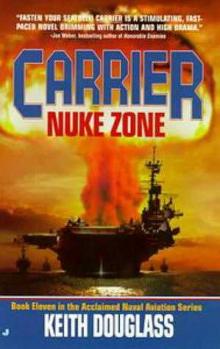 Nuke Zone c-11
Nuke Zone c-11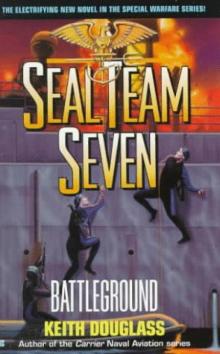 Seal Team Seven 6 - Battleground
Seal Team Seven 6 - Battleground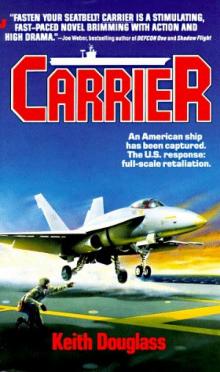 Carrier c-1
Carrier c-1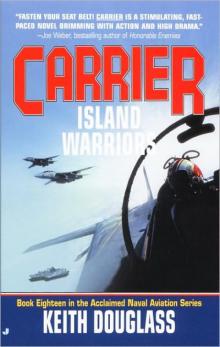 Island Warriors c-18
Island Warriors c-18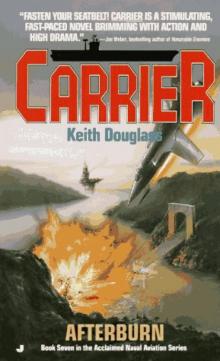 Afterburn c-7
Afterburn c-7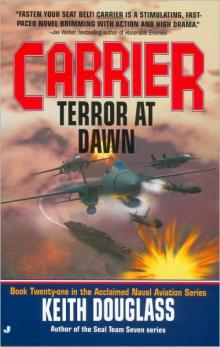 Terror At Dawn c-21
Terror At Dawn c-21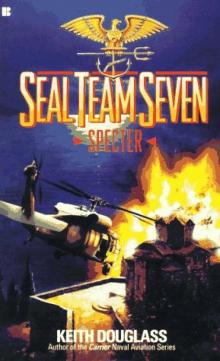 Specter sts-2
Specter sts-2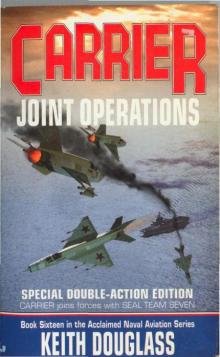 Joint Operations c-16
Joint Operations c-16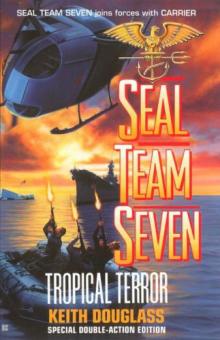 Tropical Terror sts-12
Tropical Terror sts-12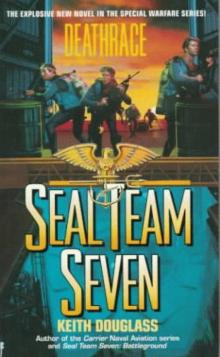 Seal Team Seven 7 - Deathrace
Seal Team Seven 7 - Deathrace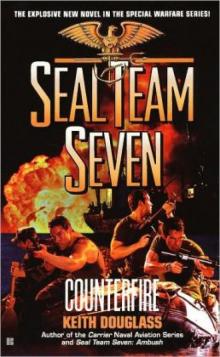 Counterfire sts-16
Counterfire sts-16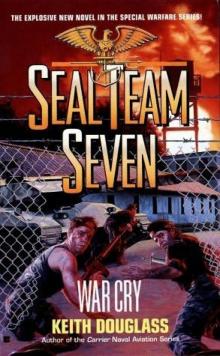 War Cry sts-9
War Cry sts-9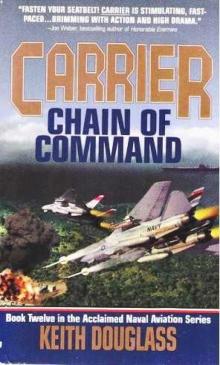 Chain of Command c-12
Chain of Command c-12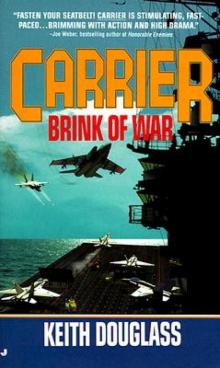 Brink of War c-13
Brink of War c-13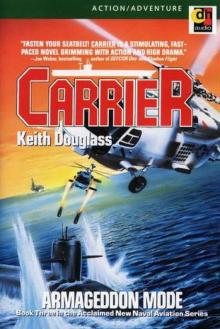 Armageddon Mode c-3
Armageddon Mode c-3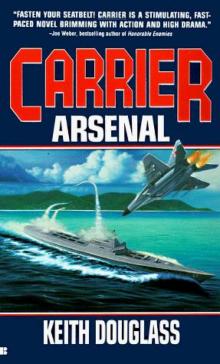 Arsenal c-10
Arsenal c-10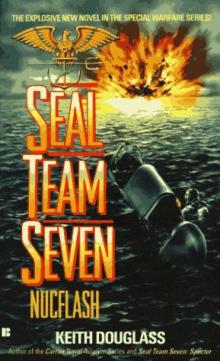 Nucflash sts-3
Nucflash sts-3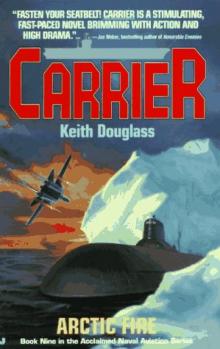 Arctic Fire c-9
Arctic Fire c-9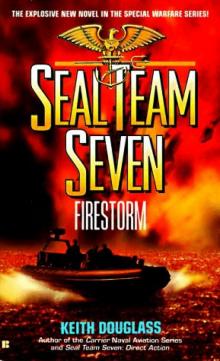 Firestorm sts-5
Firestorm sts-5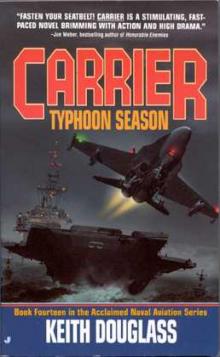 Typhoon Season c-14
Typhoon Season c-14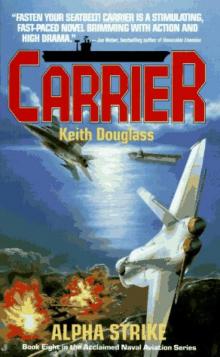 Alpha Strike c-8
Alpha Strike c-8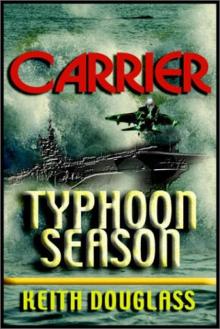 Carrier 14 - TYPHOON SEASON
Carrier 14 - TYPHOON SEASON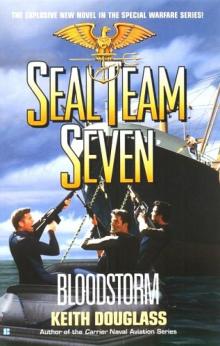 Bloodstorm sts-13
Bloodstorm sts-13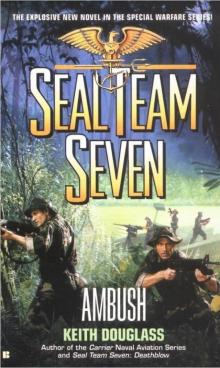 Ambush sts-15
Ambush sts-15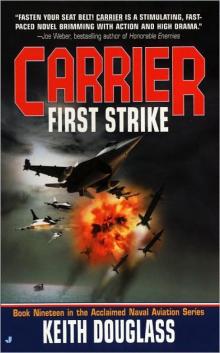 First Strike c-19
First Strike c-19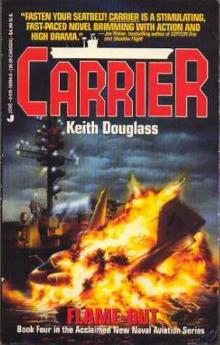 Flame Out c-4
Flame Out c-4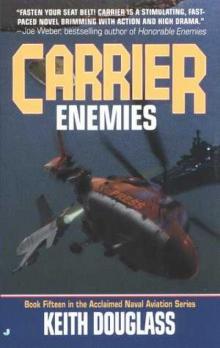 Enemies c-15
Enemies c-15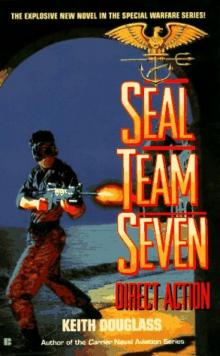 Seal Team Seven 04 - Direct Action
Seal Team Seven 04 - Direct Action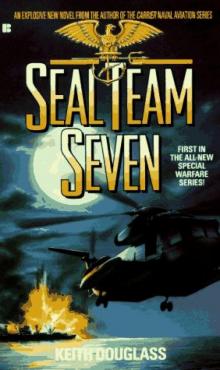 Seal Team Seven 01 - Seal Team Seven
Seal Team Seven 01 - Seal Team Seven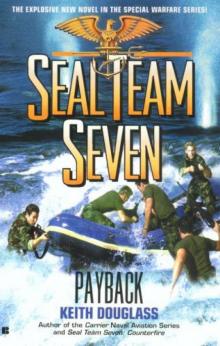 Payback sts-17
Payback sts-17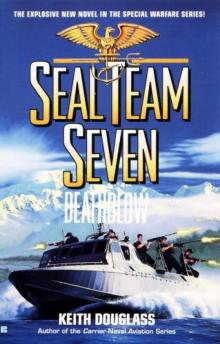 Death Blow sts-14
Death Blow sts-14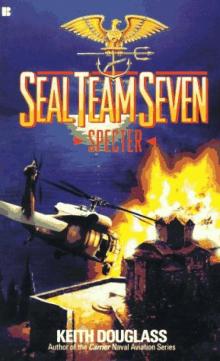 Seal Team Seven 02 - Spector
Seal Team Seven 02 - Spector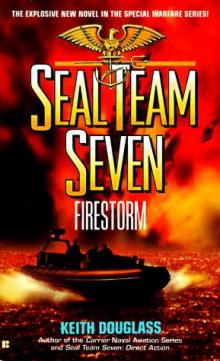 Seal Team Seven 5 - Firestorm
Seal Team Seven 5 - Firestorm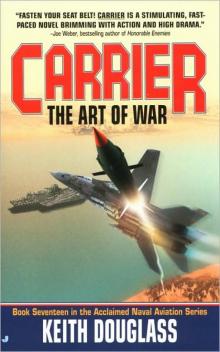 The Art of War c-17
The Art of War c-17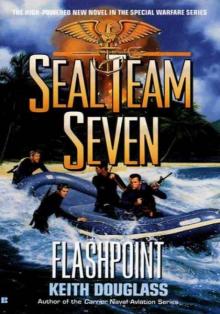 Flashpoint sts-11
Flashpoint sts-11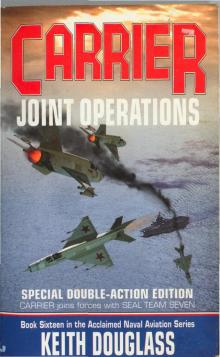 Carrier - Joint Operation Book 16
Carrier - Joint Operation Book 16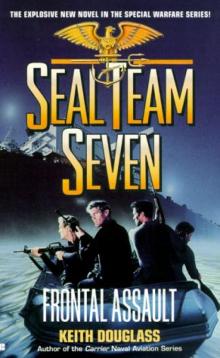 Frontal Assault sts-10
Frontal Assault sts-10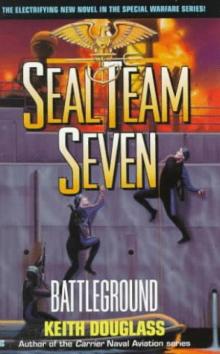 Battleground sts-6
Battleground sts-6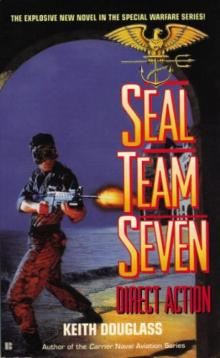 Direct Action sts-4
Direct Action sts-4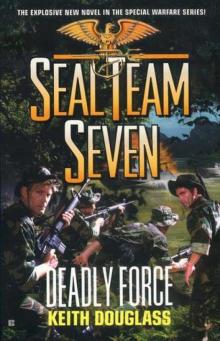 Deadly Force sts-18
Deadly Force sts-18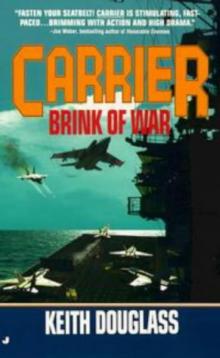 Carrier 13 - Brink of War
Carrier 13 - Brink of War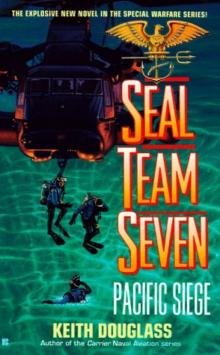 Pacific Siege sts-8
Pacific Siege sts-8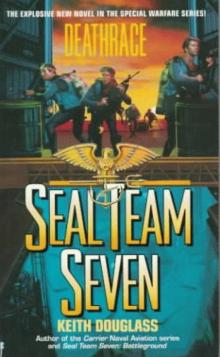 Deathrace sts-7
Deathrace sts-7